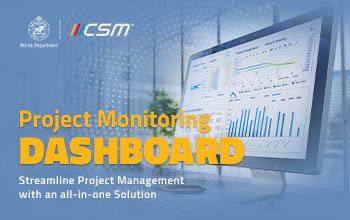Picture this- A world where businesses don't just chase profits, but actively work to make our planet greener, our societies fairer, and our corporate practices more transparent. Sounds like a dream, right? Well, thanks to the rising importance of Environmental, Social, and Governance (ESG) factors, this dream is quickly becoming reality. In this backdrop, Global Capability Centers (GCCs) are emerging as powerful drivers of the ESG agenda. By leveraging their unique position and capabilities, GCCs can spearhead transformative change and create lasting value across the ESG spectrum.
.jpg)
The ESG Wake-Up Call
Let's face it - we're living in a world where simply making money isn't enough anymore. Investors are asking tough questions about sustainability. Consumers are voting with their wallets, choosing brands that align with their values. Employees want to work for companies that are making a real difference in reducing their carbon footprint. And governments are tightening the screws with new regulations left and right.
It's clear - ESG isn't just a fancy buzzword. It's a call to action (CTA). And businesses need to answer that call, not with lip service, but with genuine, meaningful change.
GCCs as ESG Catalysts
GCCs with their centralized operations and cross-functional expertise, are uniquely positioned to drive the ESG agenda. Here's how:
Centralized Compliance: As regulatory landscapes evolve, GCCs can leverage economies of scale to ensure consistent compliance across geographies. This centralized approach streamlines reporting and reduces the risk of non-compliance.
Data Integration: ESG initiatives often suffer from siloed data and fragmented reporting. GCCs can break down these silos, integrating data from various sources to provide a holistic view of ESG performance.
Standardization: By establishing standardized processes and metrics, GCCs can ensure consistency in ESG reporting and performance tracking across the organization.
Innovation Hub: GCCs can serve as centers of innovation, piloting new ESG technologies and practices before wider implementation.
Stakeholder Engagement: With their global reach, GCCs can facilitate effective engagement with diverse stakeholders, from suppliers to local communities.
.jpg)
The ESG Maturity Journey
The role of GCCs in driving ESG value evolves with organizational maturity:
Basic: At this stage, GCCs focus on fundamental activities like ESG reporting and regulatory compliance.
Established: GCCs take on more collaborative roles, setting ESG goals, managing internal reporting, and overseeing data management.
Advanced: GCCs engage in external stakeholder management, handle ESG disclosures, and ensure data governance.
Leading: At the highest level of maturity, GCCs drive ESG analytics, influence branding strategies, and provide sourcing advisory services.
Building a Centralized ESG Function
To maximize impact, organizations should consider housing a centralized ESG function within their GCC. This approach offers several advantages:
End-to-end Accountability: A dedicated ESG team can oversee the entire sustainability lifecycle, from data collection to initiative implementation.
Cross-functional Collaboration: The ESG team can work seamlessly with other functions like regulatory compliance, implementation, and data analytics.
Technology Integration: GCCs can leverage existing technological infrastructure to develop ESG tools, platforms, and dashboards.
Global Perspective: With their international footprint, GCCs can provide valuable insights into regional ESG trends and best practices.
.jpg)
What’s the path forward?
As organizations navigate the complex ESG landscape, GCCs have a unique opportunity to lead the charge. By embracing this role, GCCs can transition from cost centers to value creators, driving sustainable growth and positive impact.
To succeed, GCCs must:
- Invest in ESG expertise and technology
- Foster a culture of sustainability and innovation
- Align ESG initiatives with broader business objectives
- Collaborate closely with other business units and external partners
- Continuously measure and communicate ESG impact
The ESG revolution is here, and GCCs are poised to be at its forefront. By leveraging their unique capabilities and position within the organization, GCCs can drive meaningful change, create lasting value, and help build a more sustainable future for all stakeholders. As we move forward, the question for organizations is not whether to embrace ESG, but how to do so most effectively. For many, the answer lies in empowering their GCCs to lead the way. The journey may be challenging, but the potential rewards - for businesses, society, and the planet - are immeasurable.


























































We will verify and publish your comment soon.